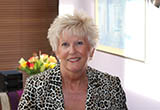 In December 2011, the NHS identified six ways technology could help patients and, ultimately, save money. A freedom of information request was sent to 211 clinical commissioning groups (CCGs) across England in October 2014 looking for a progress update; 189 (90%) responded.
In December 2011, the NHS identified six ways technology could help patients and, ultimately, save money. A freedom of information request was sent to 211 clinical commissioning groups (CCGs) across England in October 2014 looking for a progress update; 189 (90%) responded.
How did they do? Well, it’s a mixed bag, with CCGs naturally opting to cherry-pick where to focus their efforts. But overall the picture is not healthy.
At best, adoption of high impact innovations aimed at improving millions of patients’ lives is patchy and inconsistent across the NHS in England. NHS waiting times for wheelchairs for children with disabilities—among our most vulnerable members of society—can be 200 days or more. Nearly seven months. The average wait is 50 days. The target for getting children into an appropriate wheelchair is one day.
Oesophageal doppler monitoring—assessing the fluid status of post-operative patients or others who have had some form of invasive intervention—is variable across the UK. Just 40% of CCGs—ranging from 16% in London to 67% in the South West—are working with local providers on intra-operative fluid management targets. And yet not doing so increases the risk of additional complications, including organ failure, and even unnecessary death.
CCGs were tasked to work with UK Trade and Investment to increase national and international commercial activity. We have found that although two-thirds of trusts have a strategy in place to make use of their intellectual property, only 6% of them had agreed payments relating to that activity. These were concentrated in just three regions: the South East, South West, and North West. And yet the UK consistently innovates and is responsible for some of the most exciting health developments going on at the moment. Commercial strategies are only useful if they are implemented, and add value only when monetised.
Another challenge was to reduce unnecessary face-to face meetings. Going digital by default, means less inconvenience for patients and better use of resources by service providers. Every 1% reduction in face-to face contact is estimated to save £200 million. Money that could be released to fund improved care elsewhere. Although CCGs and trusts are working very well together, there is vast regional variation. No CCGs in the eastern region reported payments for “Digital by default,” compared with 36% in the South West region.
Medical technology offers great potential to provide value for money to the NHS and taxpayers, and offers genuine improved healthcare to patients. No-one disputes this. And with increasingly tight budgets, the need to make major efficiency improvements has never been more crucial. CCGs need to keep on talking the talk, but they must also be seen to be walking the walk. It is disappointing that we have not seen take up of simple measures to stop unnecessary A&E admissions, or to speed up children getting wheelchairs they need.
The MTG believes that clinicians and patients both need better information about medical technologies so that they can make informed choices about the right medical care.
We will continue to engage with medical professionals over the appropriate use of technologies, disseminating guidance and best practice advice to commissioners, and delivering enhanced training and guidance for clinicians on the range of technologies available and how to use them.
And this will deliver better patient outcomes. Early intervention with the right medical technology improves recovery rates and the need for additional medical interventions. In turn, this minimises medium to long term costs to the NHS, allowing for a change in approach from short-term cost reduction to long-term and sustainable cost-effectiveness.
A full copy of the report, Innovation, Health & Wealth—A scorecard report, can be found at here.
Barbara Harpham is the chair of the Medical Technology Group, the only UK coalition of industry groups and patient charities working together to improve patient information about, as well as access to, effective medical technologies. MTG’s report Innovation, Health & Wealth – A Scorecard can be found here.
Competing interests: Barbara Harpham is chair of the Medical Technology Group (a coalition of patient groups, research charities and medical device manufacturers). Unpaid position.